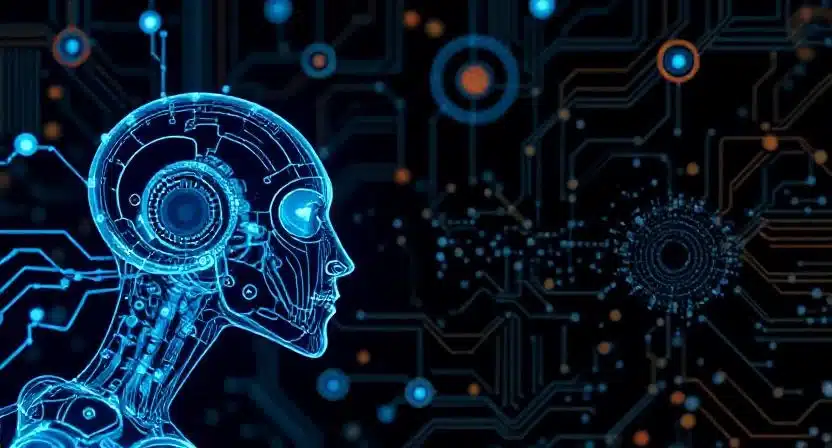
Technology | Definition, Examples, Types, & Facts
A person wakes up to the sound of their phone alarm, browses through different apps, makes coffee with a coffee machine, drives to work with the help of GPS, and even participates in a meeting on Zoom. Every routine step is completed using tools and technology. The example given above illustrates the extent to which technology assists humans. However, what is technology exactly? Why is it so important? In this piece, we will explore technology, its types, and provide brief examples.
What is Technology? A Simple Definition
The core function of technology is to simplify problem-solving by utilizing systems, tools, and knowledge. Technological innovations, starting from the wheel to mobile devices and even artificial intelligence, have always aimed at improving the quality of human life.
Key Facts:
- The various forms of technology comprise both tangible equipment, such as machines, and intangible equipment, like software and systems.
- New advancements are made in technology to solve emerging problems.
- The impact is felt not only in particular fields of work but also in individual lives, lifestyle, and the community at large.
Importance of Technology in Daily Life
Technology is a necessity of human life today. For communication, education, health, or business, technology is a must. All these functions are made easy for human beings.
Why technology is important:
- Communication: Social media and video calls, along with messaging apps, bring a huge number of people together and communicate from any corner of the world.
- Healthcare: Technology in the medical profession also serves to save lives, ranging from MRI machines to telemedicine.
- Education: Throughout the COVID-19 period, students used E-learning platforms and online classrooms for their regular lectures.
- Business: Automation, cloud, and digital marketing also support businesses to drive growth.
- Daily Life: Internet shopping, intelligent homes, and electronic banking ease the work.
In a nutshell, technology plays a crucial role in transforming our lives and driving progress forward. Communication has been revolutionized, thanks to messaging apps, social media, and video calls. People can connect and interact with each other anywhere in the world.
Types of Technology:
Technology isn’t limited to mechanisms; it exists in many forms. Understanding the types of technology helps us to see its broad impact on our lives.
Information Technology (IT)
- Focus: Computers, software, and networks.
- Example: Cloud storage, mobile apps, cyber security.
Communication Technology
- Focus: Tools for connecting people through social media apps.
- Example: Email, smartphones, social media platforms.
Medical Technology
- Focus: Healthcare innovation.
- Example: Diagnostic tools, robotic surgery, wearable health trackers.
Industrial & Manufacturing Technology
- Focus: Production efficiency.
- Example: Robotics, 3D printing, assembly line automation.
Energy Technology
- Focus: Power generation and sustainability.
- Example: Solar panels, wind turbines, smart grids.
Transportation Technology
- Focus: Movement of people and goods.
- Example: Electric cars, high-speed trains, and GPS navigation.
Emerging Technologies
- Focus: Future-oriented advancements.
- Example: Artificial intelligence, machine learning, blockchain, quantum computing.
Examples of Technology in Real Life
To better understand, let’s analyze examples of technology around us:
- Smartphones – Pocket-sized computers in your pocket.
- Smart Homes – Voice assistants, automated lights, security cameras.
- Wearable – Smart watches that track health.
- Medical Devices – Pacemakers, insulin pumps.
- Green Tech – Electric cars, energy-saving appliances.
These examples show how technology in daily life simplifies routines, saves time, and increases productivity.
Advantages of Technology
Technology is not only about ease; it opens up enormous opportunities.
Main advantages of technology:
- Efficiency: Tasks that used to take hours now take minutes.
- Accessibility: Healthcare and education extend to rural locations.
- Innovation: New services and products enhance the standard of living.
- Globalization: Companies have easy access to global markets.
- Sustainability: Technologies for renewable energy facilitate environmentally friendly living.
Disadvantages of Technology
However, no innovation is perfect. Technology also brings challenges.
Drawbacks of technology:
- Dependency: Over-reliance reduces critical thinking.
- Job Displacement: Automation replaces certain manual jobs.
- Privacy Risks: Data breaches and online scams threaten safety.
- Health Issues: Excessive screen time leads to eye strain, poor posture, and sleep problems.
- Digital Divide: Not everyone has equal access to modern technology.
Balancing these advantages and disadvantages of technology is crucial for responsible use.
Future of Technology in Daily Life
The future of technology promises even bigger transformations. Here’s what we can expect in the coming years:
- Artificial Intelligence Everywhere: Smarter assistants, automation, and predictive analytics.
- Healthcare Breakthroughs: Personalized medicine, biotech, and advanced telehealth.
- Smart Cities: Energy-efficient buildings, autonomous transportation, IoT integration.
- Space Exploration: Missions to Mars, commercial space travel.
- Sustainable Tech: Clean energy and eco-friendly innovations to fight climate change.
These trends show how the future of technology in daily life will bring both exciting opportunities and new responsibilities.
Surprising Facts about Technology
Let’s look at some interesting and lesser-known technology facts:
- The first computer weighed over 27 tons.
- More people own a mobile phone than a toothbrush.
- 90% of the world’s data was created in just the last two years.
- The word “robot” comes from a Czech word meaning “forced labor.”
- By 2030, it’s predicted that most cars on the road will be electric.
These facts highlight how far we’ve come and how fast technology is growing.
How Technology Shapes Society and Culture
Aside from gadgets, technology also impacts the way we think, act, and communicate.
- Social Change: Social media platforms amplify voices and movements.
- Cultural Shift: Digital art, online music streaming, and gaming transform entertainment.
- Work Culture: Telecommuting and freelancing are the new norm.
- Education Models: The traditional classroom fuses with online classrooms.
This indicates that technology is not merely a tool; it’s a force behind cultural evolution.
Conclusion: Technology as a Lifelong Companion
In our everyday lives, technology has truly become our greatest ally, helping us tackle problems and streamline our daily tasks. It plays a vital role in our work, health, communication, and education. Sure, it comes with its own set of pros and cons, but nobody can argue against its significance in various industries, society, and our day-to-day experiences. Looking ahead, the role of technology in our lives is set to evolve even further, bringing along innovations, opportunities, and responsibilities. The trick is to harness it wisely; enjoying its perks while staying aware of the challenges it presents.






